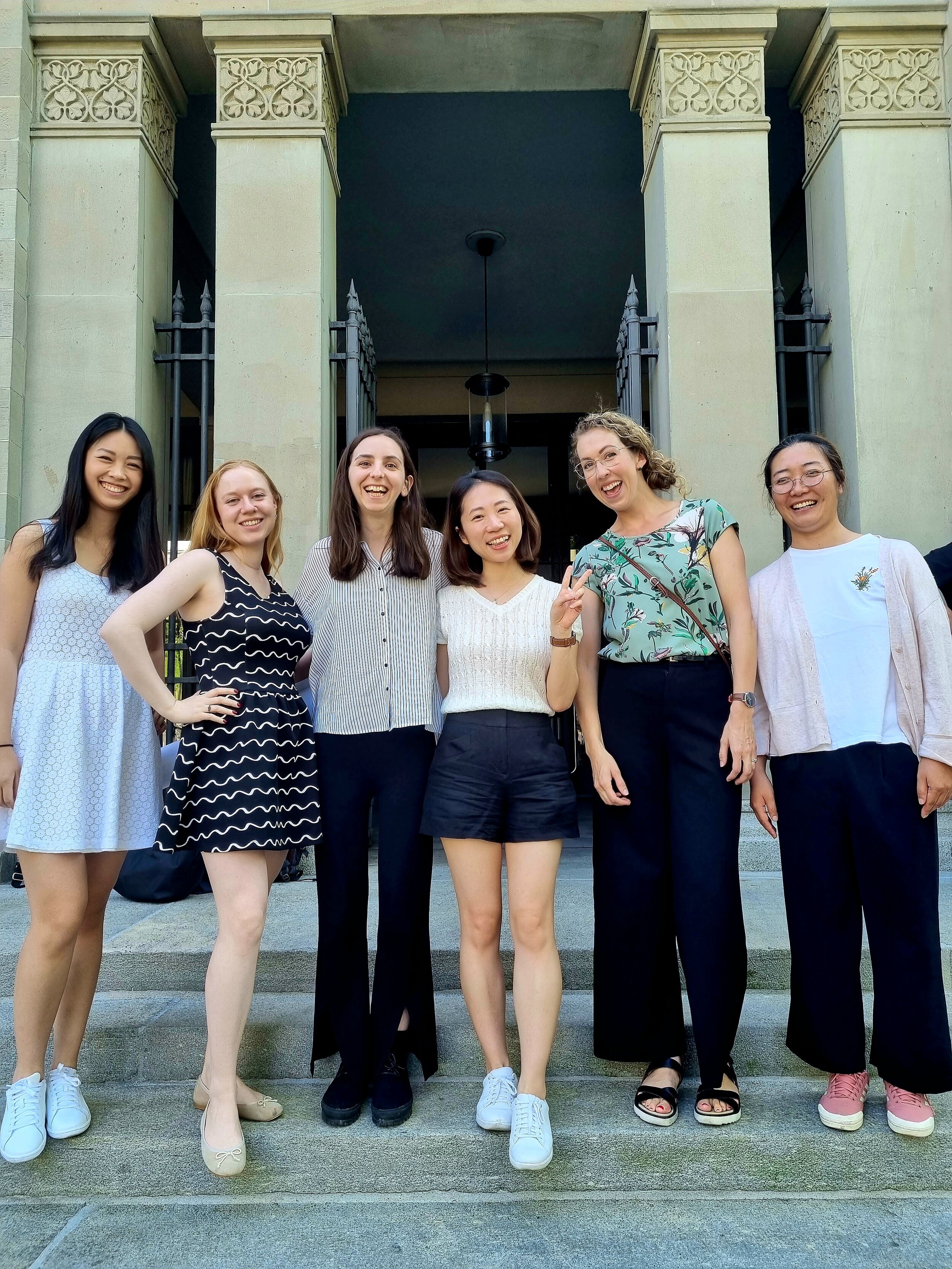Swiss Summit on Leadership, Inclusion, Diversity, & Equity (2023) in Zurich
Jamie Gloor
Thanks again to the 52 folks from universities (e.g., University of St.Gallen, University of Zurich, University of Geneva, London Business School, DCU Business School, Purdue University, Copenhagen Business School, ETH Zürich, University of Lausanne - UNIL, University of Konstanz, etc.) and practice (e.g., PwC, Femmes Juristes Suisse - Juristinnen Schweiz, & Adecco) who joined our inaugural, interdisciplinary summit on leadership, diversity, and inclusion last week in Zurich! 🙌
We explored questions related to emotional diversity, work-family, women's charisma, going beyond the gender binary, virtual inclusive leadership, mature workers, humor/well-being in flat hierarchies, sexual harassment, maternity & "maybe baby" bias, interventions for more equity at work, (male) allyship, authenticity (when, why, & for whom?), sustainable leadership, new methods (e.g., avatars and prospective meta-analyses), and more! 🤓
Our aim was to share knowledge and foster connections--especially for our early career scholars--within and beyond 🇨🇭, within and beyond academia 💡. Check out this amazing video summary of the event from the talented Sophie Moser’s perspective (PhD student at the University of Konstanz).
Thanks again to all who joined--especially our super bright PhD students and post-docs 🌟 (all here with their talk titles and affiliations: https://lnkd.in/e7ghkEV3), experienced moderator and expert panelists (e.g., Gudrun Sander, Prof. Dr., Franciska Krings, Liana Melchenko, Joséphine Marmy, Christiane Löwe, & Jacques Berent, PhD), stellar keynotes by Janine Bosak, Thekla Morgenroth (+ special shout-out to Florence Villesèche)--and last, but not least, my ever-engaged and talented co-organizers: Lauren Howe & Clara Kulich. 🙏 (2 of us shown here, since Lauren was unfortunately sick.)
Gratitude for all involved, especially our funding from SNSF Swiss National Science Foundation, University of Zurich, Geneva School of Economics and Management - UNIGE, Competence Centre for Diversity & Inclusion (CCDI-FIM) - University of St.Gallen (HSG), assistance from UZH Digital Society Initiative, & Brice Olivier Mbigna Mbakop. 🙏 While every one did a stellar job, I was particularly proud of my team’s stellar representation from the PLAID lab at CCDI (FIM-HSG; see below).
On the far left, you also see our new post-doc: Huong Pham. She finished her dissertation at LMU and brings methods expertise and interests in leader-follower granting processes. Dr. Pham will lead a paper on leader signalling via sports in our Swiss National Science Foundation Project. Welcome to the team, Huong!





